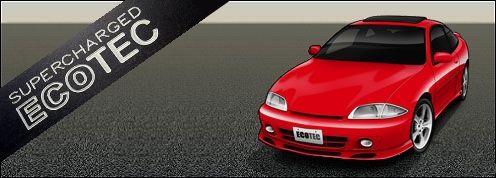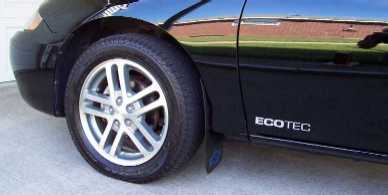JimmyZ wrote:I have a 99 Escort
BAN HIM!!!

And oh yeah, wrong forum too.......
J/K, will keep that tip in mind.
 Currently #4 in Ecotec Forced Induction horsepower ratings. 505.8 WHP 414WTQ!!!
Currently 3rd quickest Ecotec on the .org - 10.949 @ 131.50 MPH!!!
Currently #4 in Ecotec Forced Induction horsepower ratings. 505.8 WHP 414WTQ!!!
Currently 3rd quickest Ecotec on the .org - 10.949 @ 131.50 MPH!!!
Alternator theory is true.. Happend to me on my old 97 2.2

~2014 New Z under the knife, same heart different body~
______________________
WHITECAVY no more
2012 numbers - 4SPD
AUTOMATIC!!
328 HP
306 TQ
Interesting, that may the phantom problem that I could never seem to fully cure from my winter car (93 Plymouth Sundance). After replacing virtually every possible cause, the problem decreased dramatically, but still reared its ugly head every so often. Perhaps that is the cause. Good info.

Common problem its a ford
<b>JimmyZ</b> wrote:Doesn't seem to make a whole lot of sense, but it's true.
Your right...it doesn't make sense. A fully charged battery, which is capable of delivering a whole bunch of amps on demand, should have no problem delivering enough voltage and amps to run your ignition system just fine, even if the alternator output momentarily dropped to zero. Maybe when you changed the alternator, you inadvertently jostled a connector, wiring harness or some other electrical device that may have had an impact on your misfiring problem. Also, high rpm anamolies that may seem to be ignition problems can sometimes be fuel related, such as a weak fuel pump causing inadequate fuel delivery at higher rpms. Of course, your theory may be right. I'm really not trying to be argumentative here....just another viewpoint to consider before anyone goes out and buys a new alternator to correct their misfiring problem......

Lees, I agree. Something to think about is that your battery should only be around 12 volts. A health alternator should be mid-14s. I'm guessing that for this to be an issue, you would have to already be straining the alternator.

"The Blue Bullet"
TIP: Autozone and Advance can put an AMP probe on and test the output of your alternator for you. they will call it a charging system test.

This site has some good tips and confirms what JimmyZ has said. i.e. diodes failing can reduce alternator output although the alternator still gives some output.
Somewhere on here it states that GM alternators regulate voltage between 14,8/9 to 13.8 dependant on temperature
http://www.forparts.com/techdiode.htm
Alont
actually this can apply to diesels too, if the glow plugs arent warming up the cylinders properly then it might cause a misfire

Maybe this could be made a sticky. This ended up being my problem and this theory worked out for me..
My alternator when cold usually pushes out about 14 and when hot about 13.5















